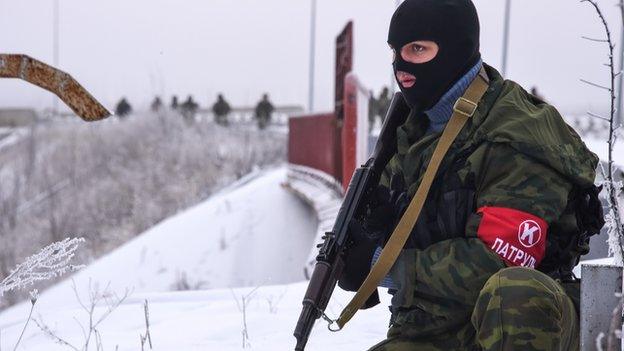Russian GRU military spy chief Igor Sergun dies
- Published
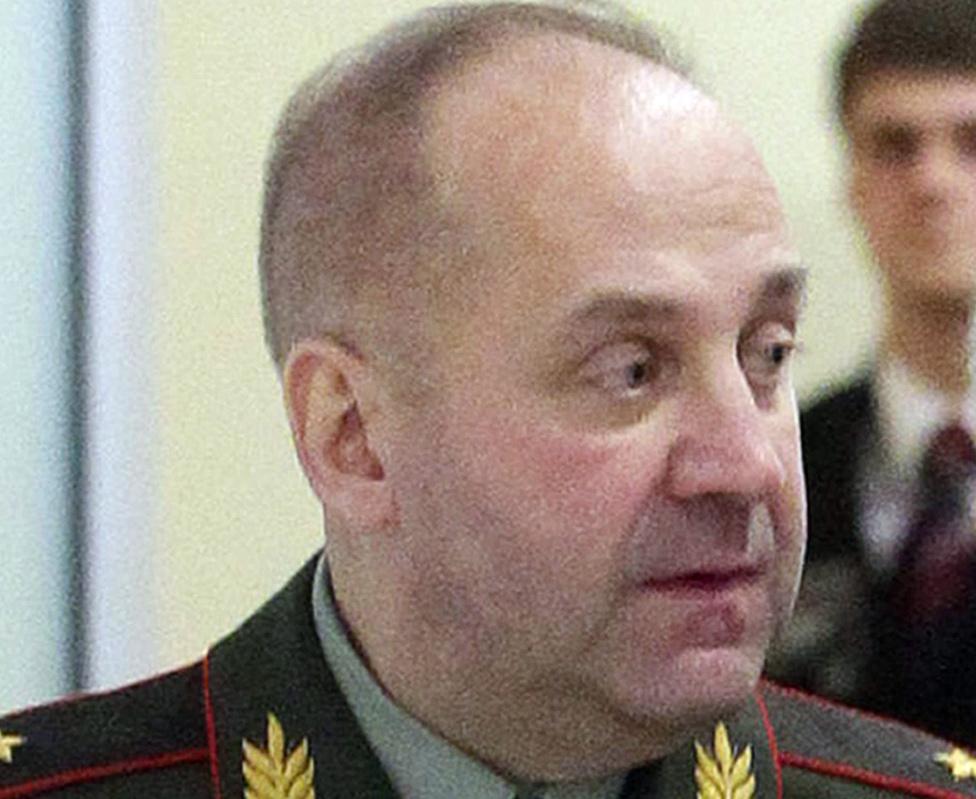
Gen Sergun took charge of the GRU after it had lost some senior staff
The head of Russia's secretive GRU military intelligence service, Gen Igor Sergun, has died suddenly aged 58.
Expressing condolences, President Vladimir Putin called him "an experienced and competent commander, a man of great courage, a true patriot".
The circumstances of his death are not clear. He became GRU chief in 2011.
In 2014 he was placed on EU and US sanctions lists targeting top Russian officials after Russia's annexation of Crimea, in southern Ukraine.
The EU list, external said Gen Sergun was "responsible for the activity of GRU officers in eastern Ukraine".
Gen Sergun is not thought to have had direct combat experience when he took charge of the GRU.
After graduating from military academies, he joined the service in 1984, and had various posts before working as military attache in Albania in 1998.
The GRU's intelligence-gathering role dates back to the Cold War, when its officers were posted to Soviet embassies, along with KGB spies.
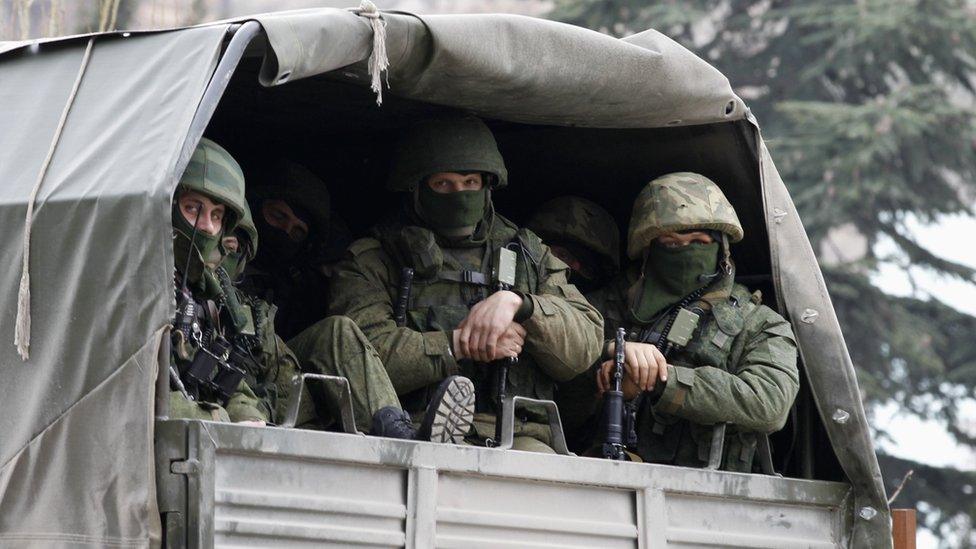
Russia deployed troops without insignia across Crimea in March 2014
President Putin entered the Kremlin after running the Federal Security Service (FSB), the main successor to the KGB.
But Russian military analyst Igor Sutyagin says the GRU "did a better job" in eastern Ukraine than the FSB.
Mr Sutyagin, of the Royal United Services Institute (RUSI), told the BBC that the FSB got its social analysis of Ukraine wrong in 2013-2014.
"Unlike them the GRU didn't try to predict the social situation. The GRU's duty was to prepare gangs, and the job of the Spetsnaz [special forces], controlled by the GRU, was to prepare an insurgency," he said.
The FSB had told Mr Putin that Ukrainians were "just waiting for him to liberate them from the 'fascists'," he said.
Ukraine role
Western analysts say the GRU played a key role in the seizure of Crimea and the pro-Russian insurgency in eastern Ukraine, which followed the Crimea annexation in March 2014.
Moscow denies that regular Russian troops have had a direct role in the Ukraine conflict, but last month President Putin said Russia could have people there "carrying out certain tasks including in the military sphere".
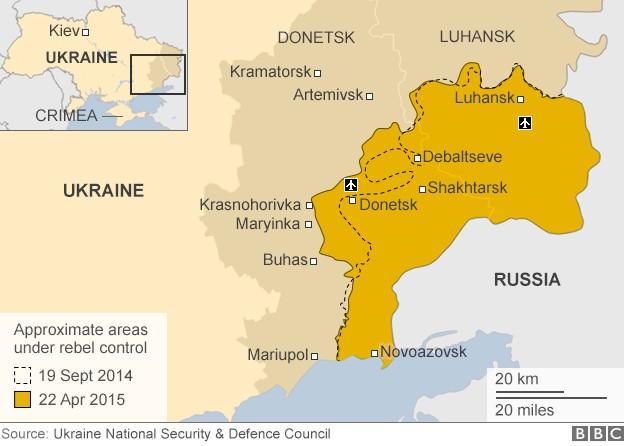
A top Russian commander in eastern Ukraine in 2014 - Igor Girkin, alias Strelkov - was identified as a GRU operative by the EU, which included him on the sanctions list.
According to Mark Galeotti, an expert on Russian security issues, the GRU recovered some of its former prestige under Gen Sergun, who took charge after some drastic cuts to the service.
The Kremlin sees GRU covert action as an asset again, after years in which the GRU's role was downgraded, he wrote in Foreign Policy, external in 2014.
But Mr Sutyagin believes the GRU went too far in eastern Ukraine. "The FSB method is to have things done for them by others, whereas the GRU is not afraid to get its hands dirty," he argues.
But Mr Putin did not want eastern Ukraine to break away from the rest of Ukraine, according to Mr Sutyagin. The plan was to use the region as a pressure valve, to exert influence on the Kiev government, he said.
"The process of isolating eastern Ukraine had to be stopped at a certain point - so the GRU's time has passed. Now it is time for FSB-style plotting again," he said.
- Published19 October 2015
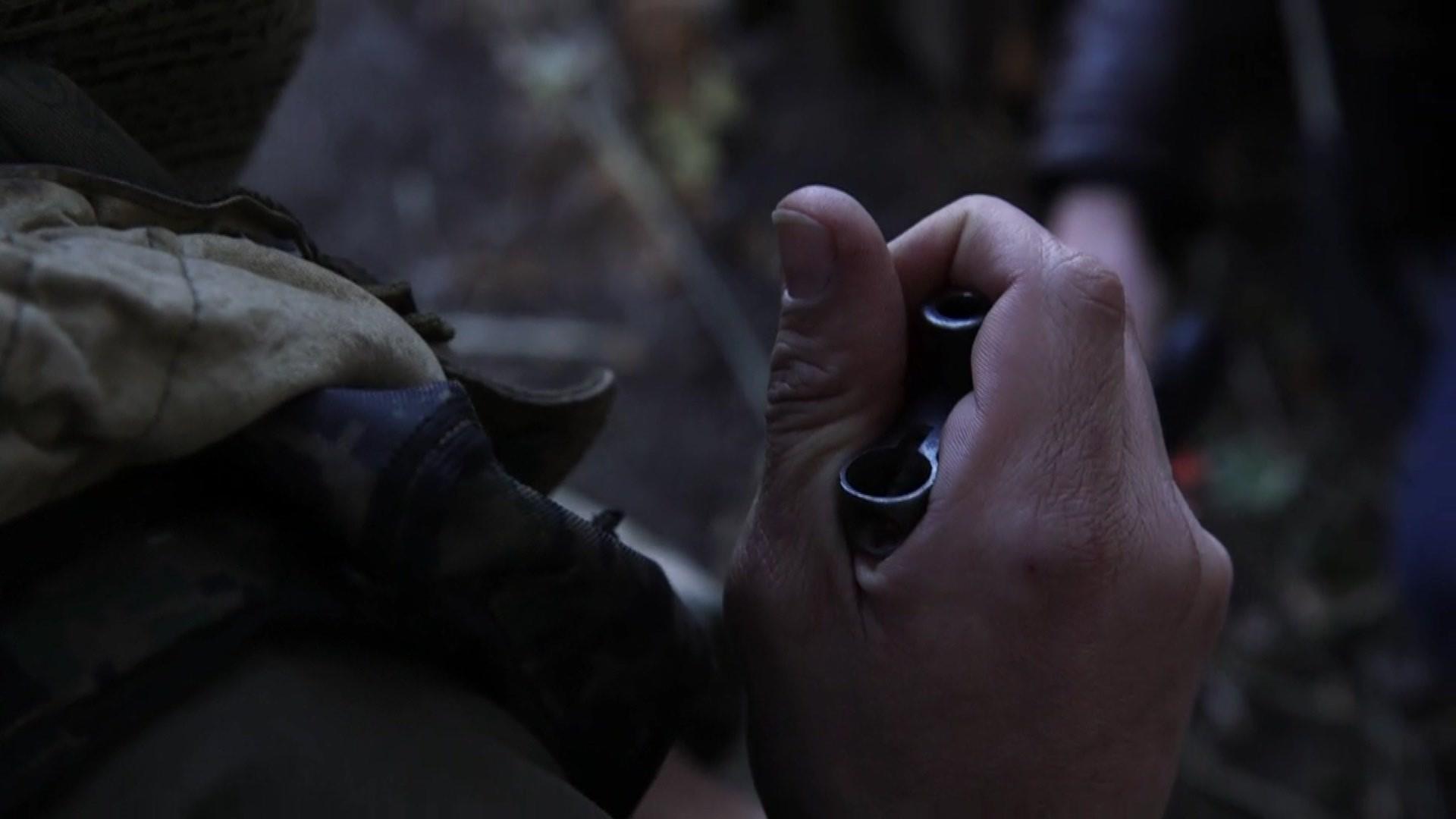
- Published9 March 2015
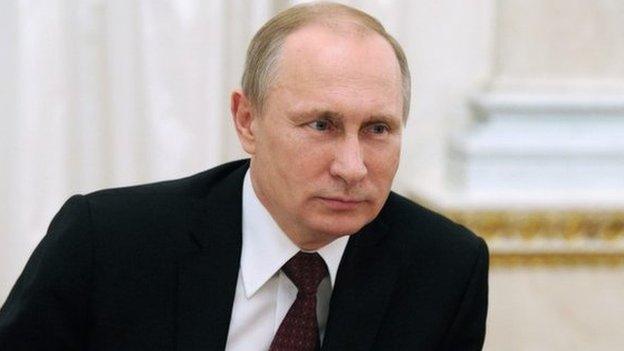
- Published15 January 2015
